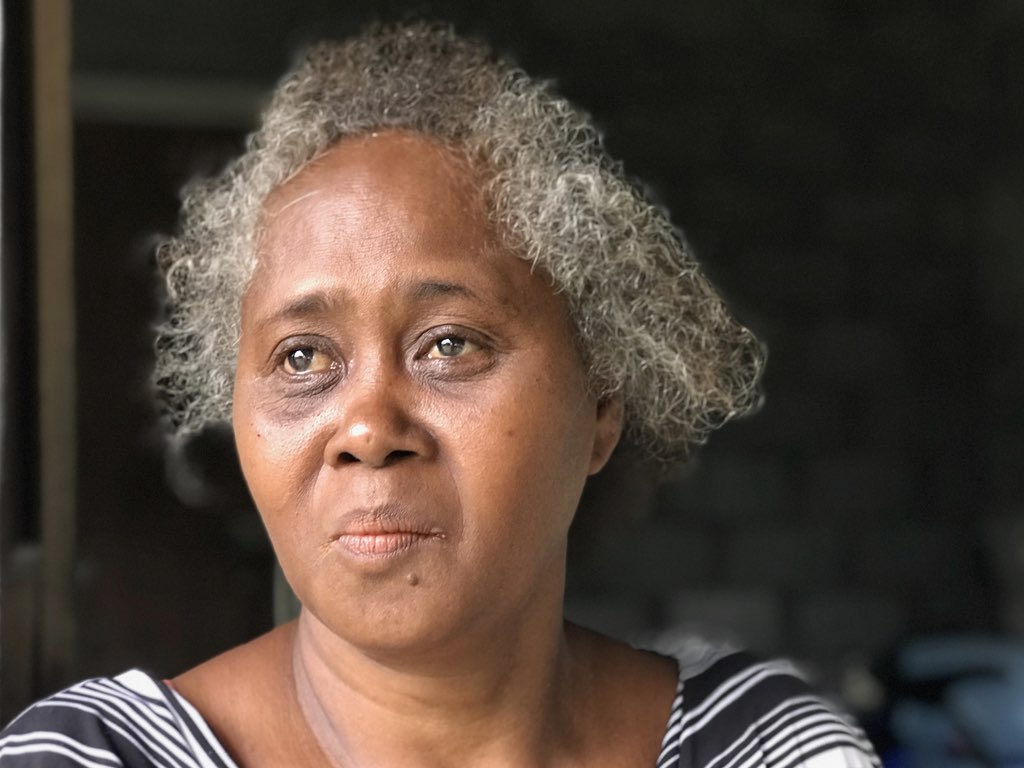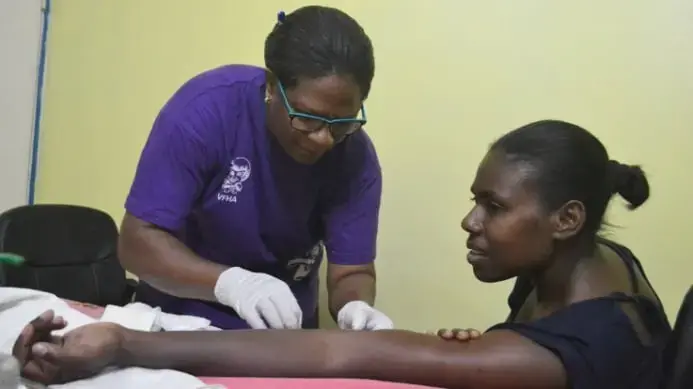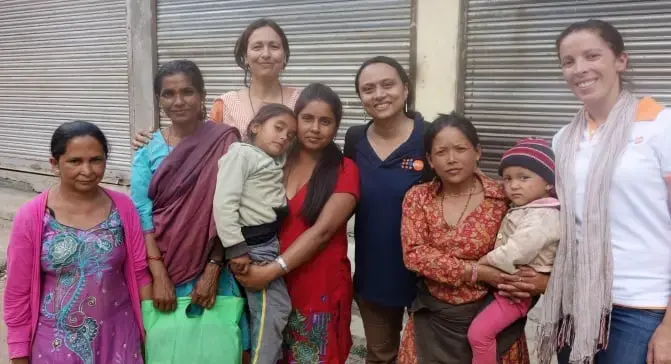Being there
Being there
A photo story about prepositioning supplies to protect women, girls and the most vulnerable before and after emergencies.
In order to strengthen preparedness and build resilience, UNFPA’s Asia-Pacific Regional Office manages a flagship programme, the Regional Prepositioning Initiative, which targets the most disaster-prone countries in the region. Since 2016, the Regional Prepositioning Initiative has reached over 140,000 direct beneficiaries with more than US$1.6million worth of essential supplies to meet the sexual and reproductive health needs of women and girls and to prevent and respond to gender-based violence in 54 emergencies across 15 countries. This collection of photographs shares stories from across the region and this report distills key lessons from the initiative, which is supported by Australia.
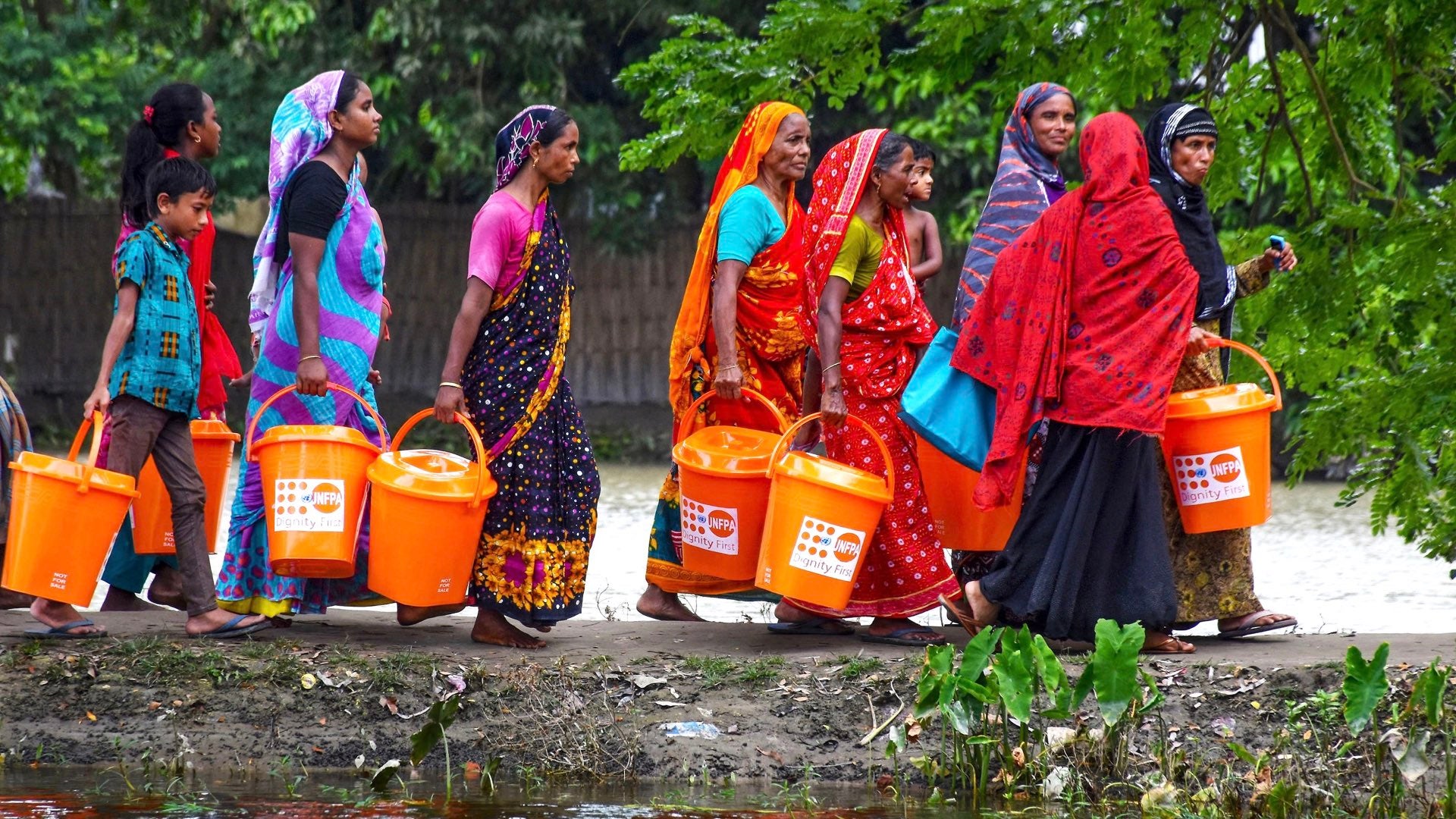
Bangladesh: Women walk back to their homes after receiving dignity kits at their local health center. The kits play a critical role in helping the women rebuild a normal routine with good hygiene for them and their families. It is a critical part of a mosaic of services and supplies that health officials and the government have prioritized during disaster response. ©UNFPA/Bangladesh/Naymuzzaman
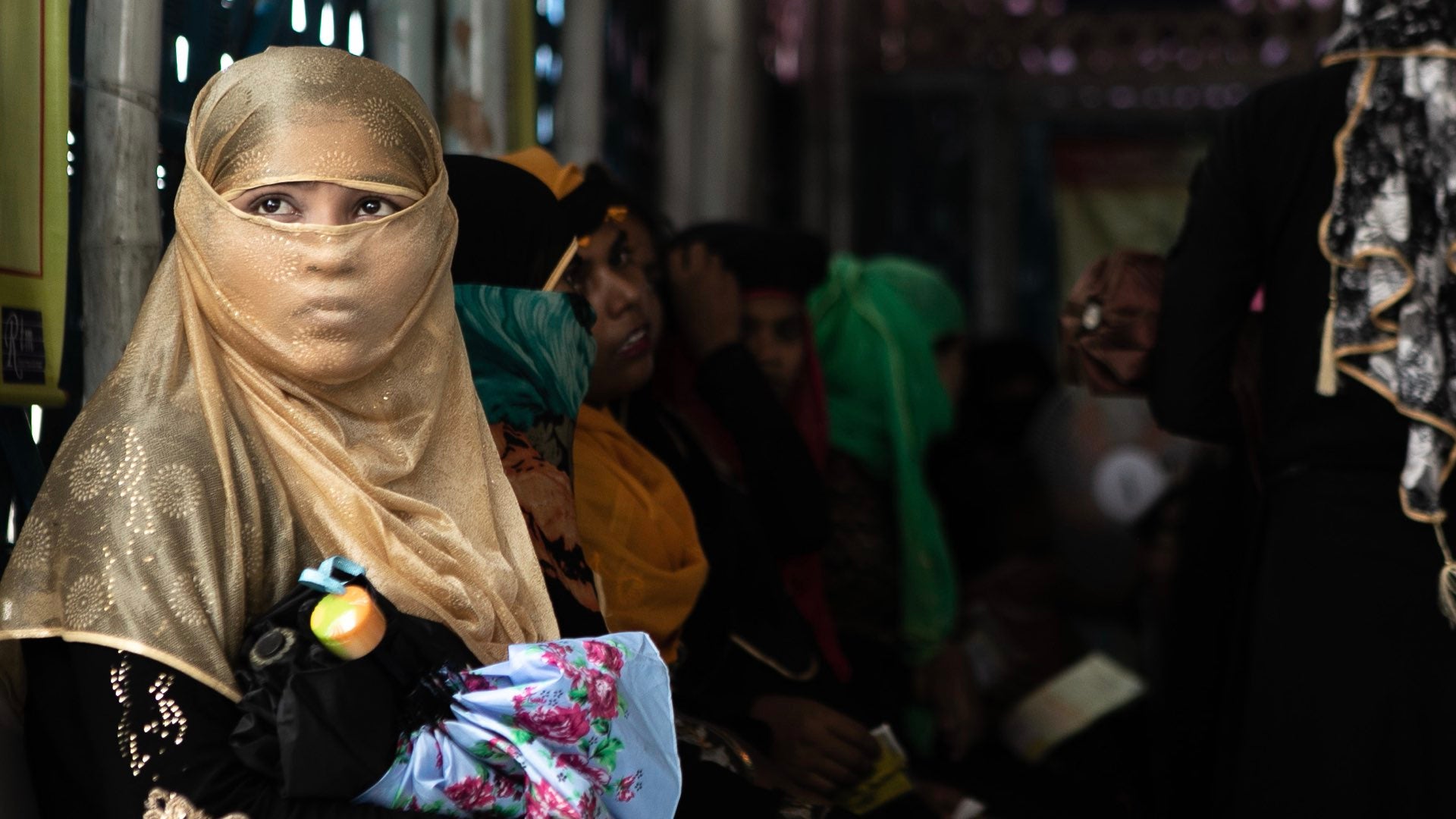
Bangladesh: Cox’s Bazar is the world’s largest refugee camp. Services for Rohingya women and girls are stretched thin in a health system that is already coping with the needs of nearly 1 million refugees who have been displaced. UNFPA works with partners to create safe spaces for women and girls. These are adjacent to health clinics so nurses and midwives can be involved to help everyone access essential sexual and reproductive health services. ©UNFPA/Learson
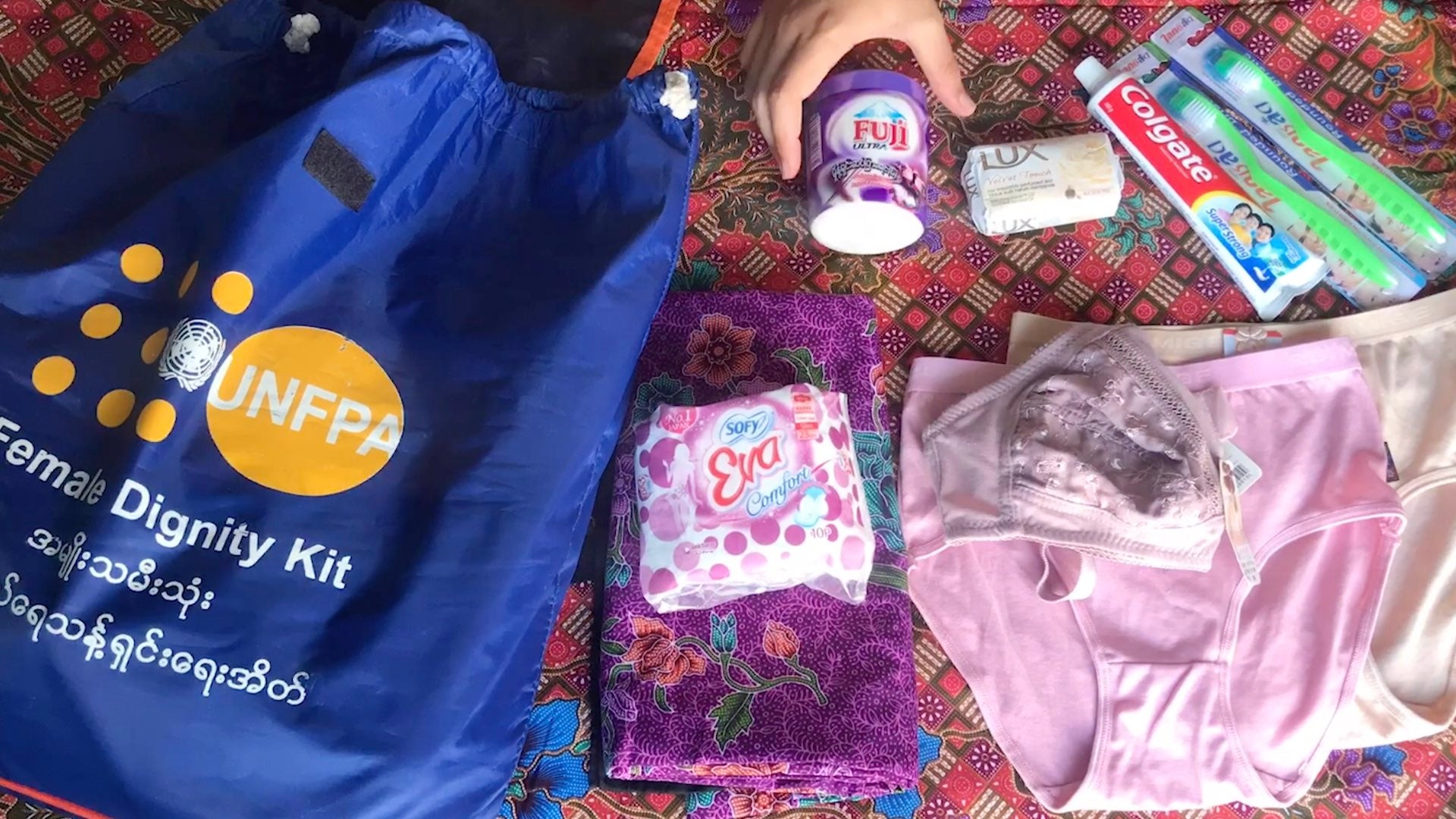
Without adequate clothing, menstrual supplies and hygiene items, women and girls may be unable to access basic services, including humanitarian aid. That’s why UNFPA distributes its trademark Dignity Kits during disasters, to reduce vulnerability and connect women and girls to information, support and services. Dignity Kits contain underwear, basic clothing, sanitary napkins, toothbrushes, toothpaste, soap and laundry powder, as well as information on the services that are available and how to access them. ©UNFPA/Rose
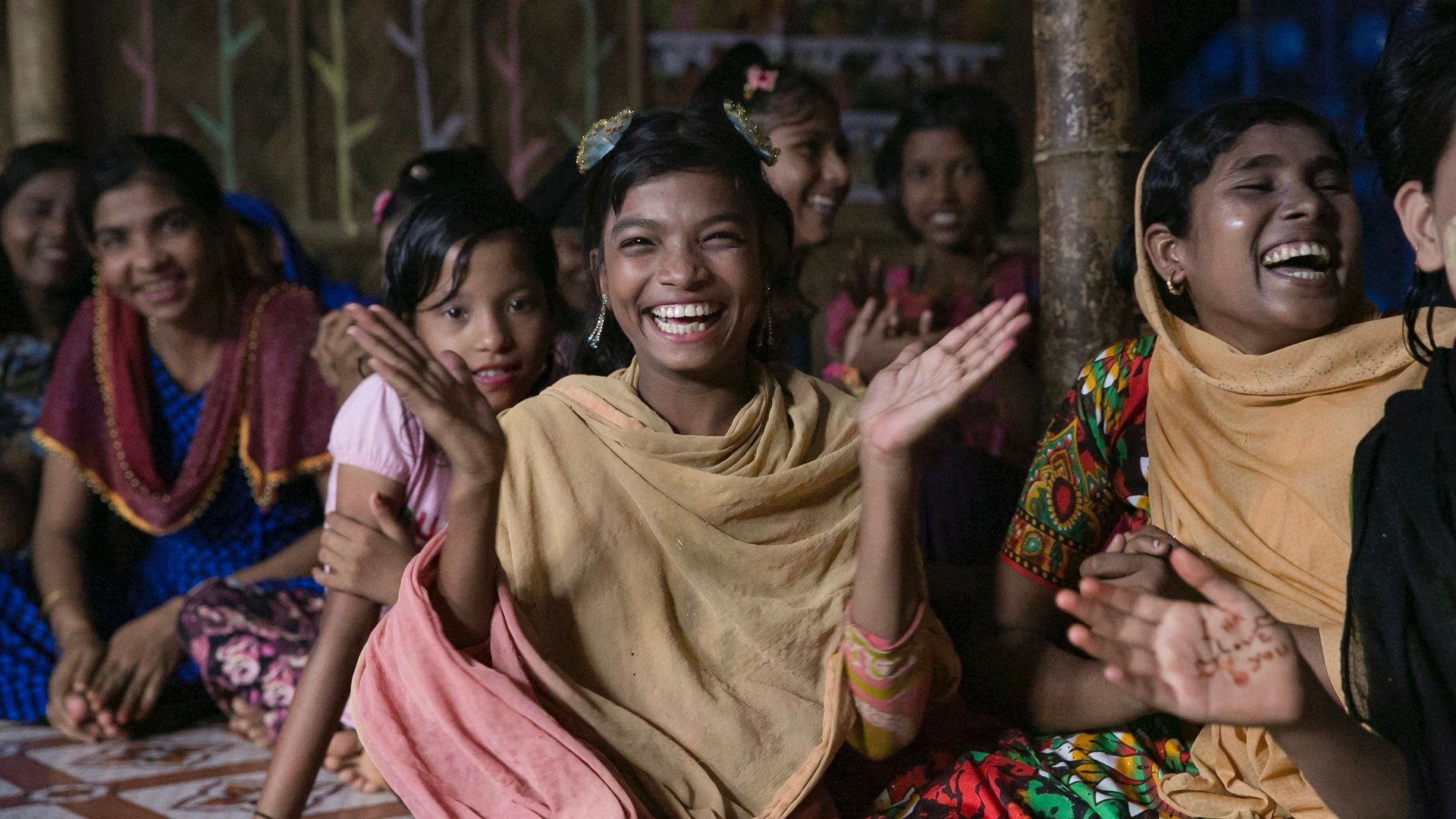
Bangladesh: Girls share a laugh and enjoy a game as part of the specialised GEMS Youth Curriculum at a Youth Friendly Space in a refugee camp in Cox's Bazar. In the densely packed camp, UNFPA advocates for health partners to make safe spaces available for adolescents and youth, The games and youth sessions are a first step in building trust. It leads to forums for young people to share their concerns and priorities. The safe space also plays a role in building referral pathways for issues of gender based violence and sexual and reproductive health. ©UNFPA/Allison Joyce
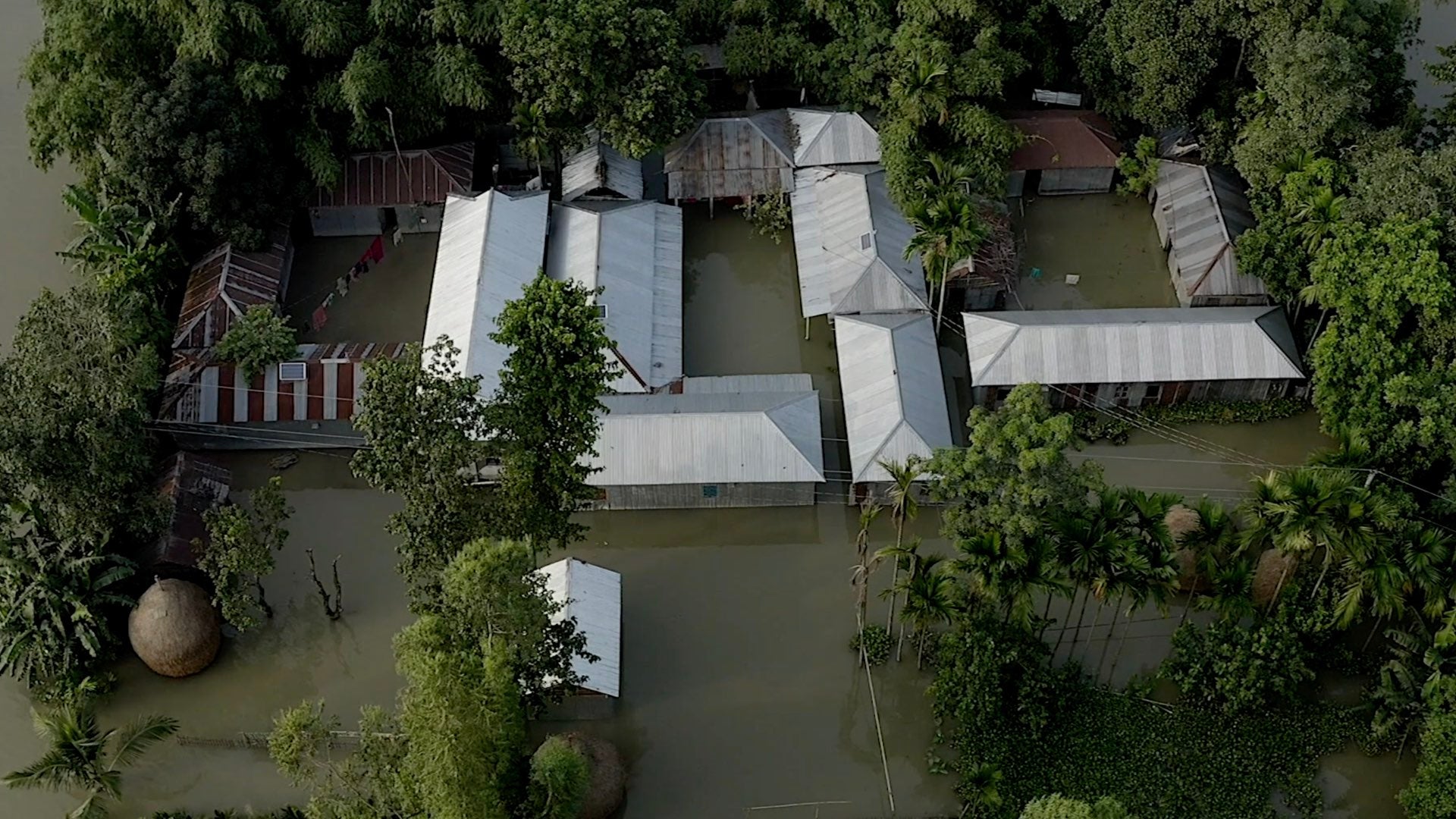
Bangladesh: Monsoon flooding in Chilmari, Kurigram July 2020. ©UNI351998/Rahman
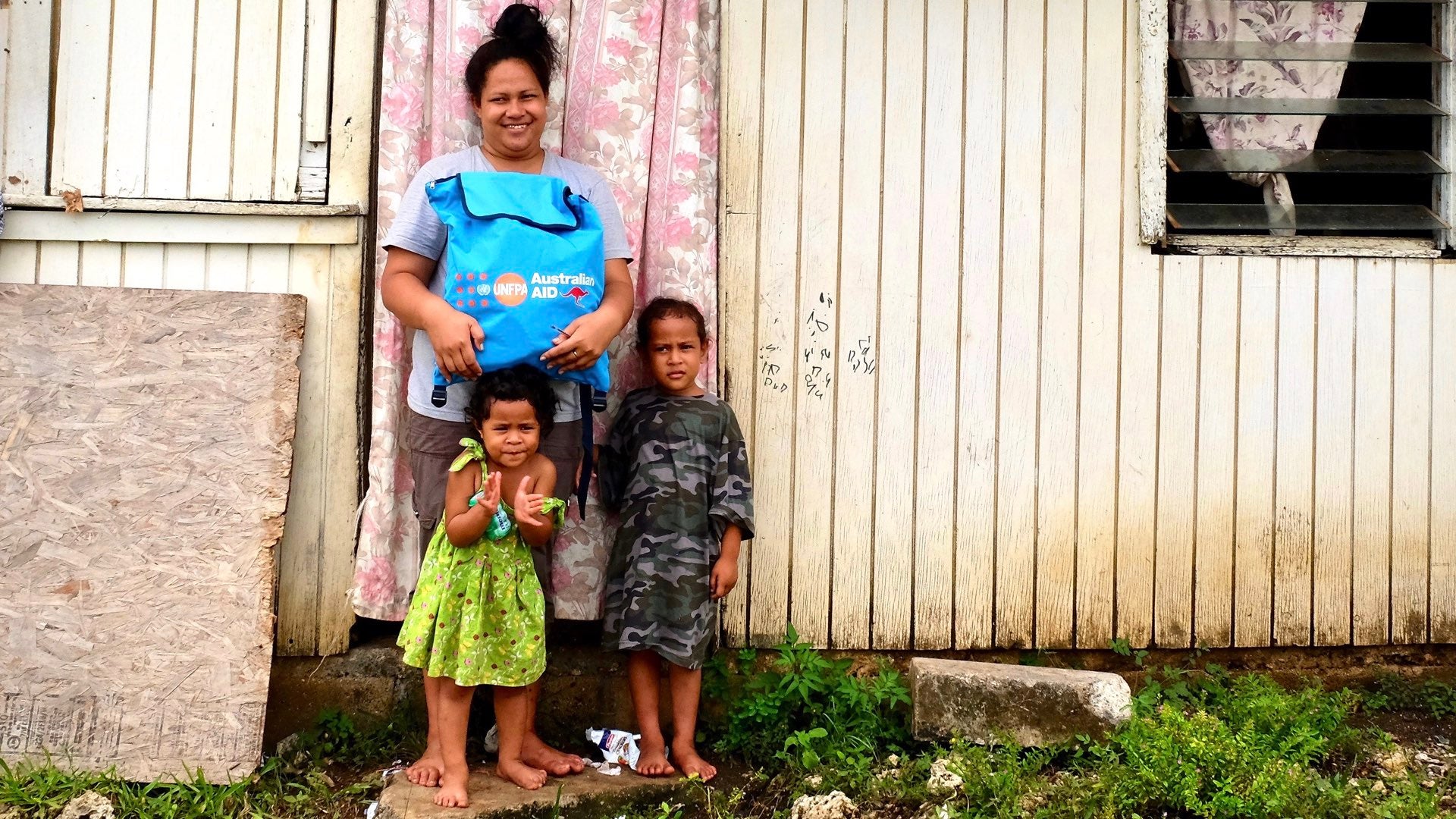
Tonga: A UNFPA dignity kit provided basic sanitation, hygiene and protection supplies for 25-year-old Pipiena Tuivai when her home on ‘Eua Island in the Kingdom of Tonga was destroyed by Tropical Cyclone Gita in February 2018. “This is the first relief supply that we received since the cyclone destroyed our home. My husband and I grabbed our two children and ran to the evacuation center on the night that the cyclone came. We were so scared. The next morning, when we came back to our home, we couldn’t believe our eyes. The walls were ripped off, the roof was torn and everything was gone. Our crops were damaged too- we have no food. I am so happy to receive shirts, towels, soap and underwear in this dignity kit. I am so happy to receive sanitary pads. Now I can focus on getting supplies for my children.” ©UNFPA/Kurokawa
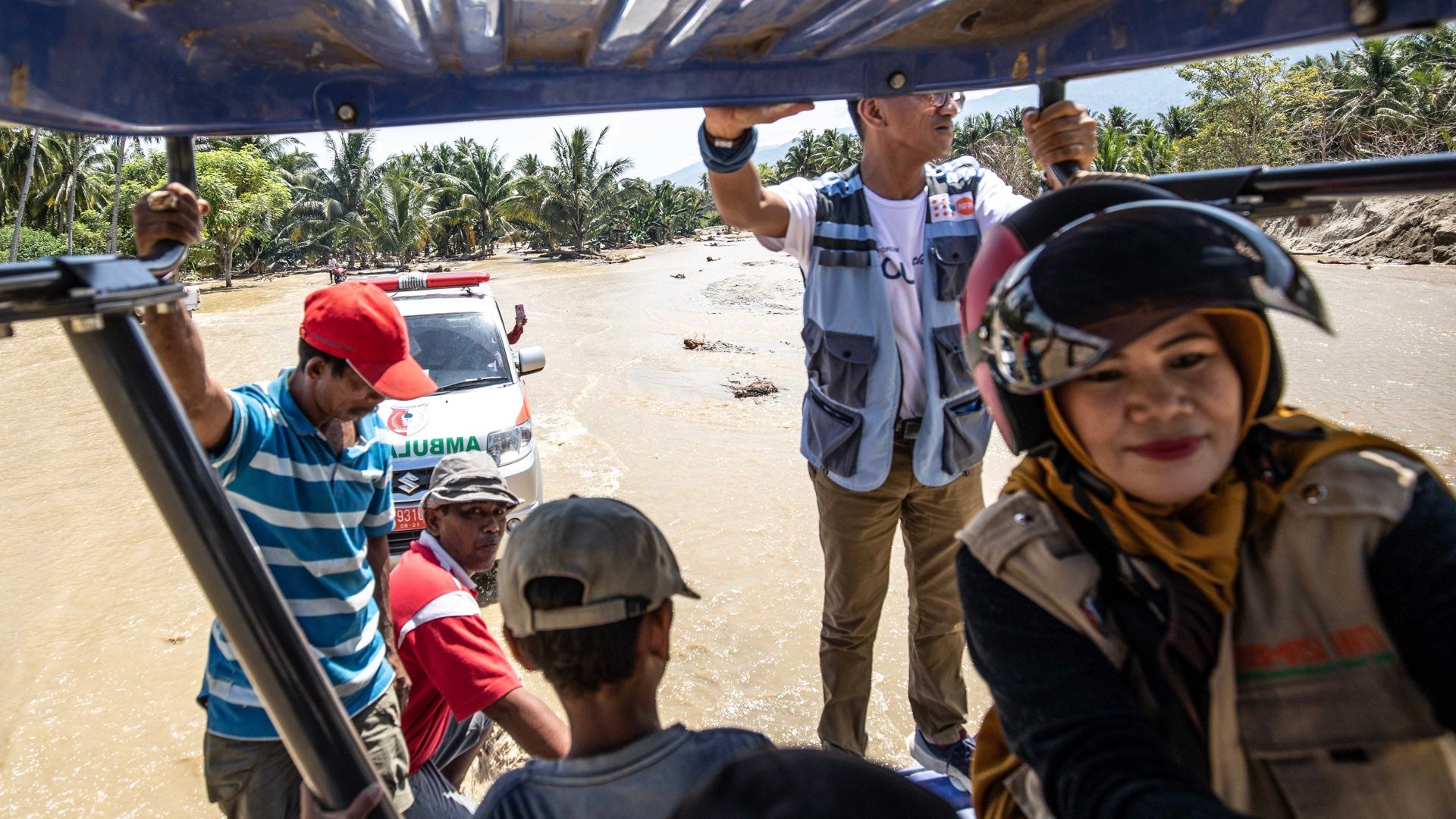
Indonesia: Health workers and the UNFPA humanitarian team hang on to the back of a truck carrying Dignity Kits and supplies across a flooded river in Bangga in April 2019. The assessment of the Regional Prepositioning Initiative found that the project has enabled quicker, more cost-effective responses. In Indonesia, UNFPA’s response was three times faster and cheaper with national prepositioning. ©UNFPA/Learson
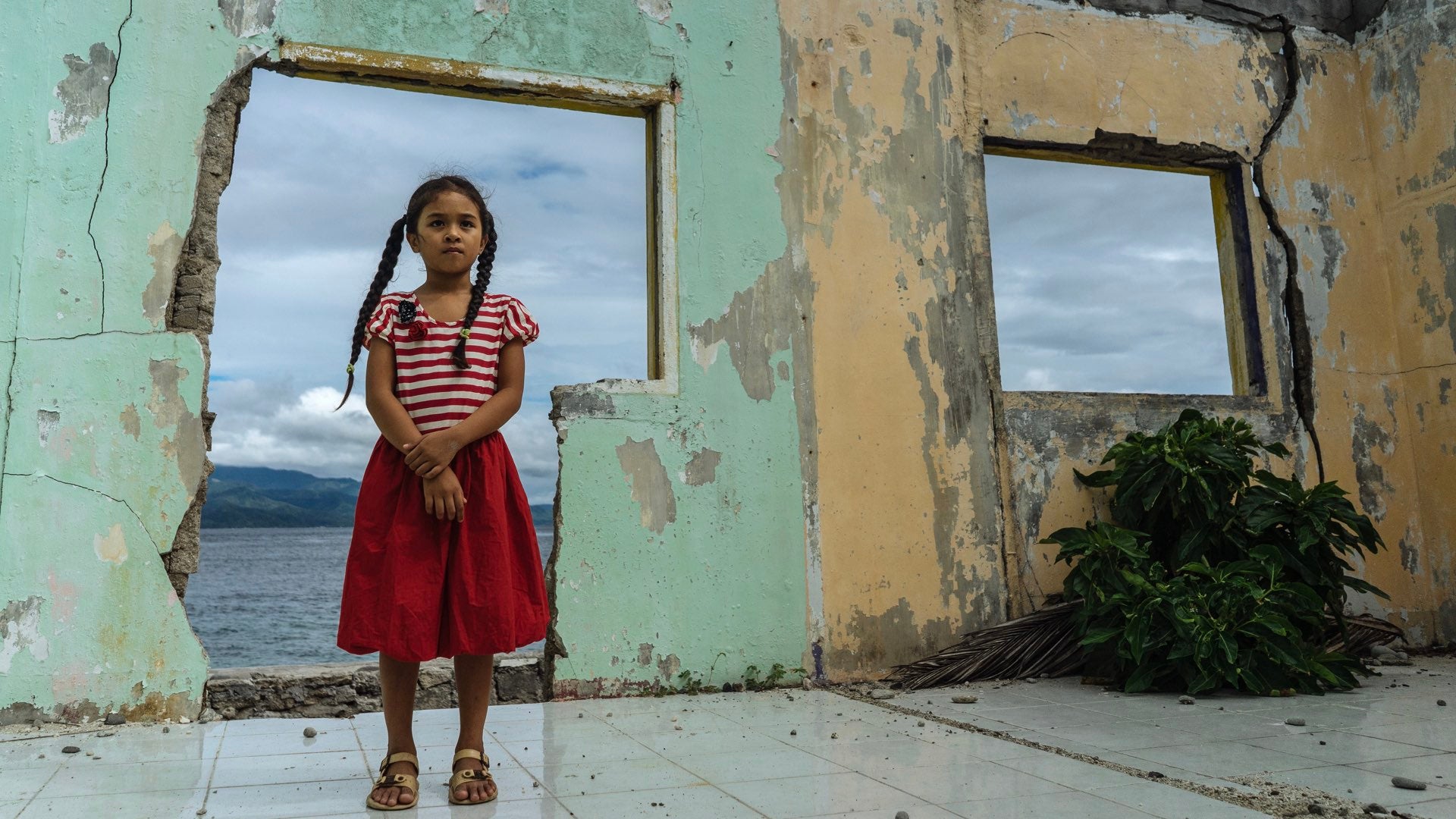
Philippines: A girl dressed in her Sunday best stands in front of the remains of a home that was destroyed by Typhoon Nina in 2015. UNFPA is working closely with government partners in the Philippines to plan for extreme weather events. Through the cluster system, UNFPA is in regular dialogue and collaboration with health and protection officials to ensure that women and girls are able to access the health services they need year round, and especially following a natural disaster. ©Hannah Reyes Morales
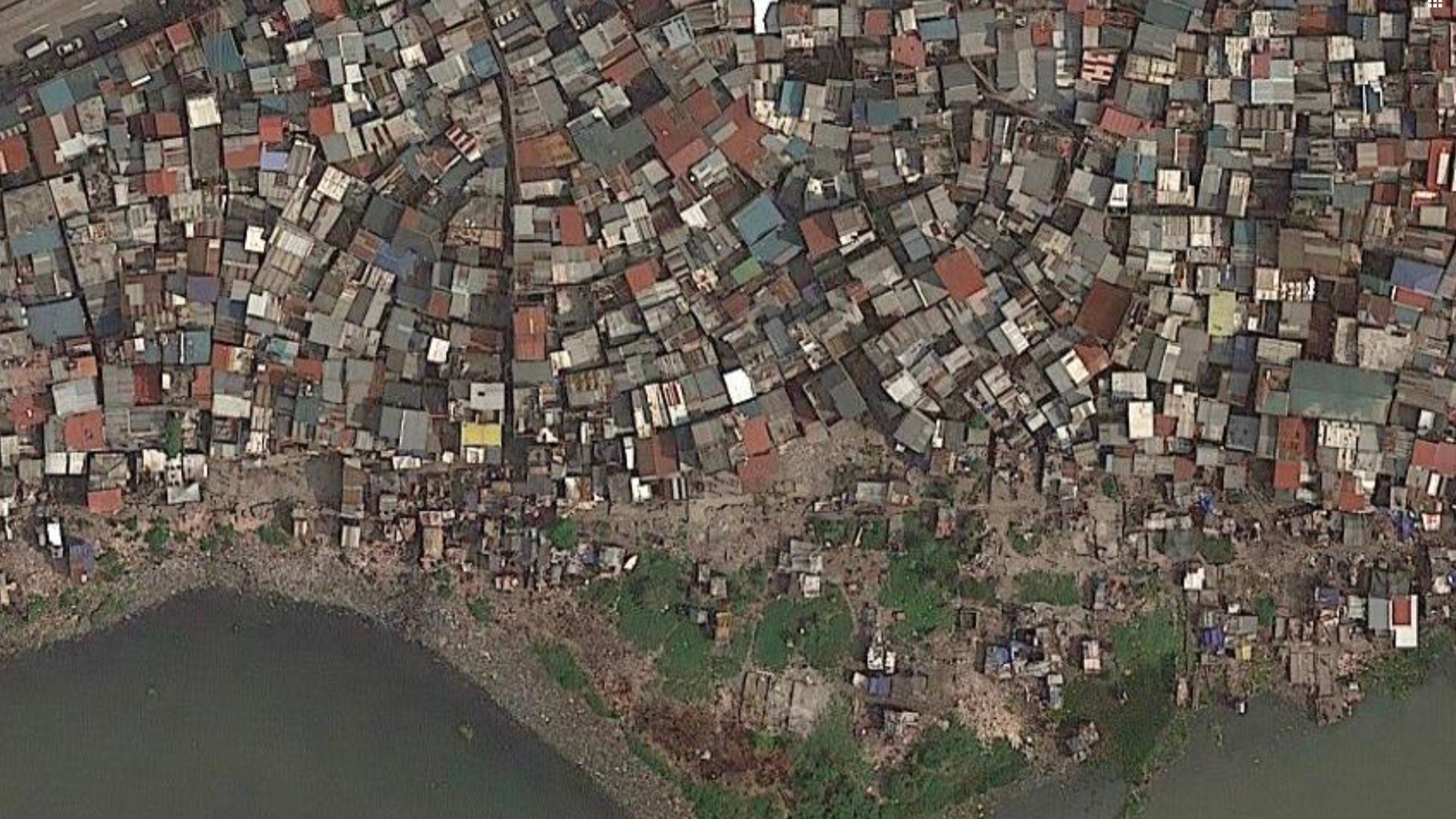
Philippines: Informal settlements in Manila are vulnerable to flooding which can disrupt health services. Collabortion with the Departament of Health has put in place community mapping systems so women, girls and other at risk groups can get supplies and health services when natural diasters hit. ©Google
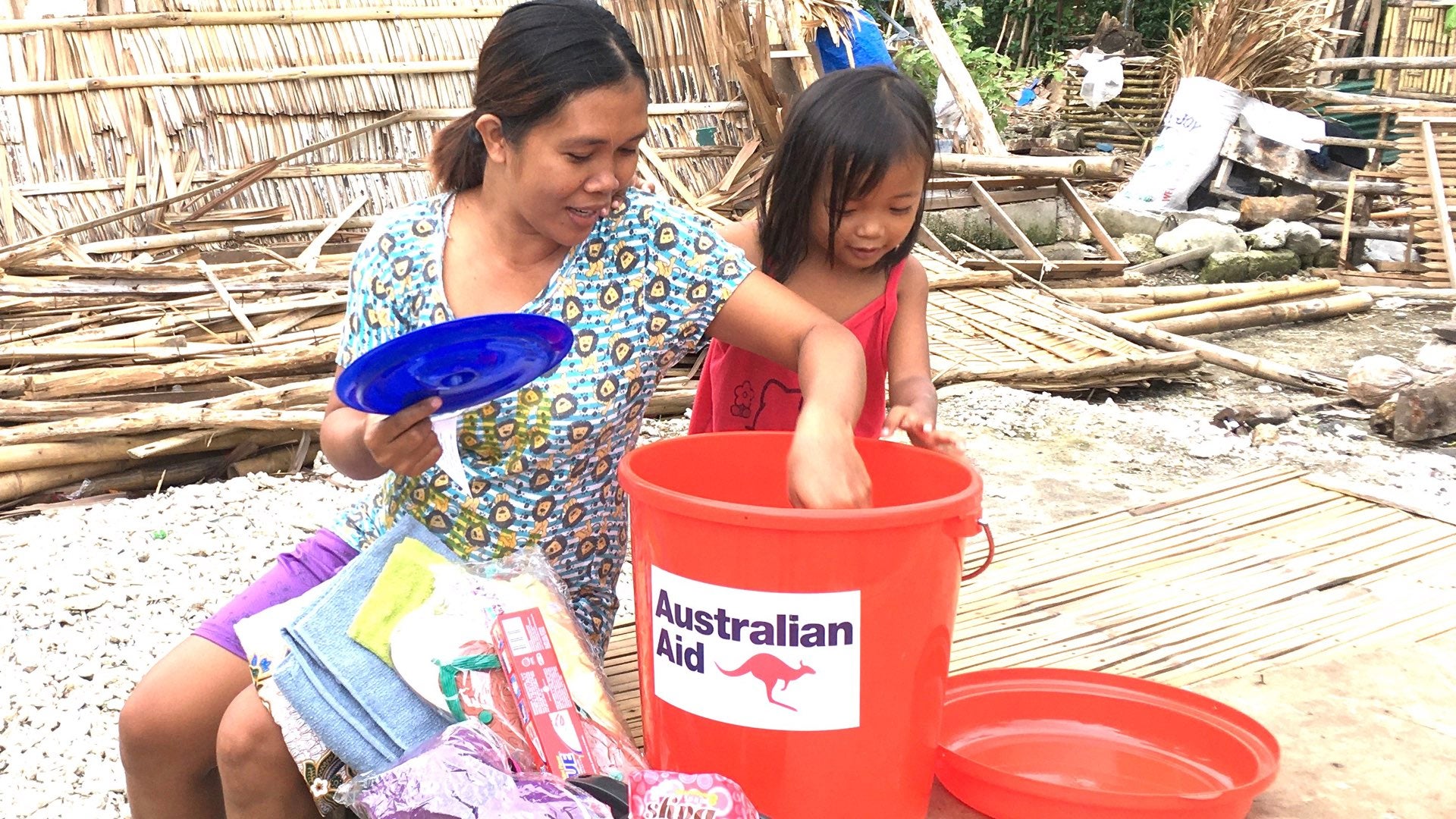
Philippines: Cris and her 5-year old daughter, in front of their ravaged house in January 2020. The Dignity Kit they received from the Northern Samar Provincial Social Welfare Development Office helped them to maintain good hygiene routines during the critical weeks when they had to rebuild their home and water systems. ©UNFPA/Philippines:/Kim Ian Tiu
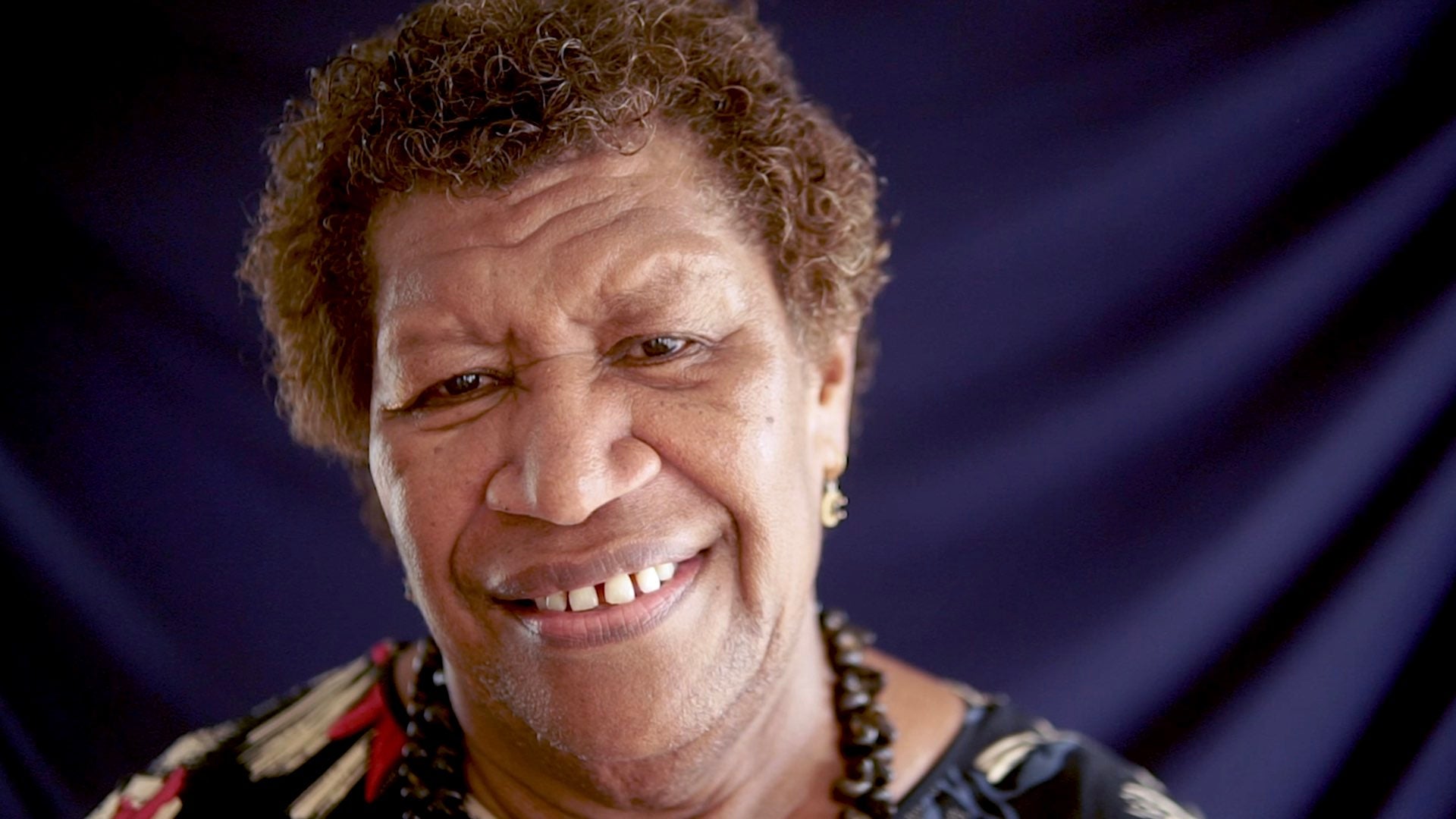
Fiji: UNFPA mobilizes retired midwives to deliver lifesaving sexual and reproductive health services in disaster zones to ensure that decades of experience in women’s health is available where and when it’s needed the most. Meresimani Kauata is a retired midwife from Fiji. She gets deployed to emergencies across the Pacific to uphold women's dignity when they receive maternal health care. Her life saving skills are also used to support safe outcomes for mothers and babies, even in the midst of a disaster. Her most recent emergency deployment was in Samoa during the measles outbreak in 2019. ©UNFPA/Black
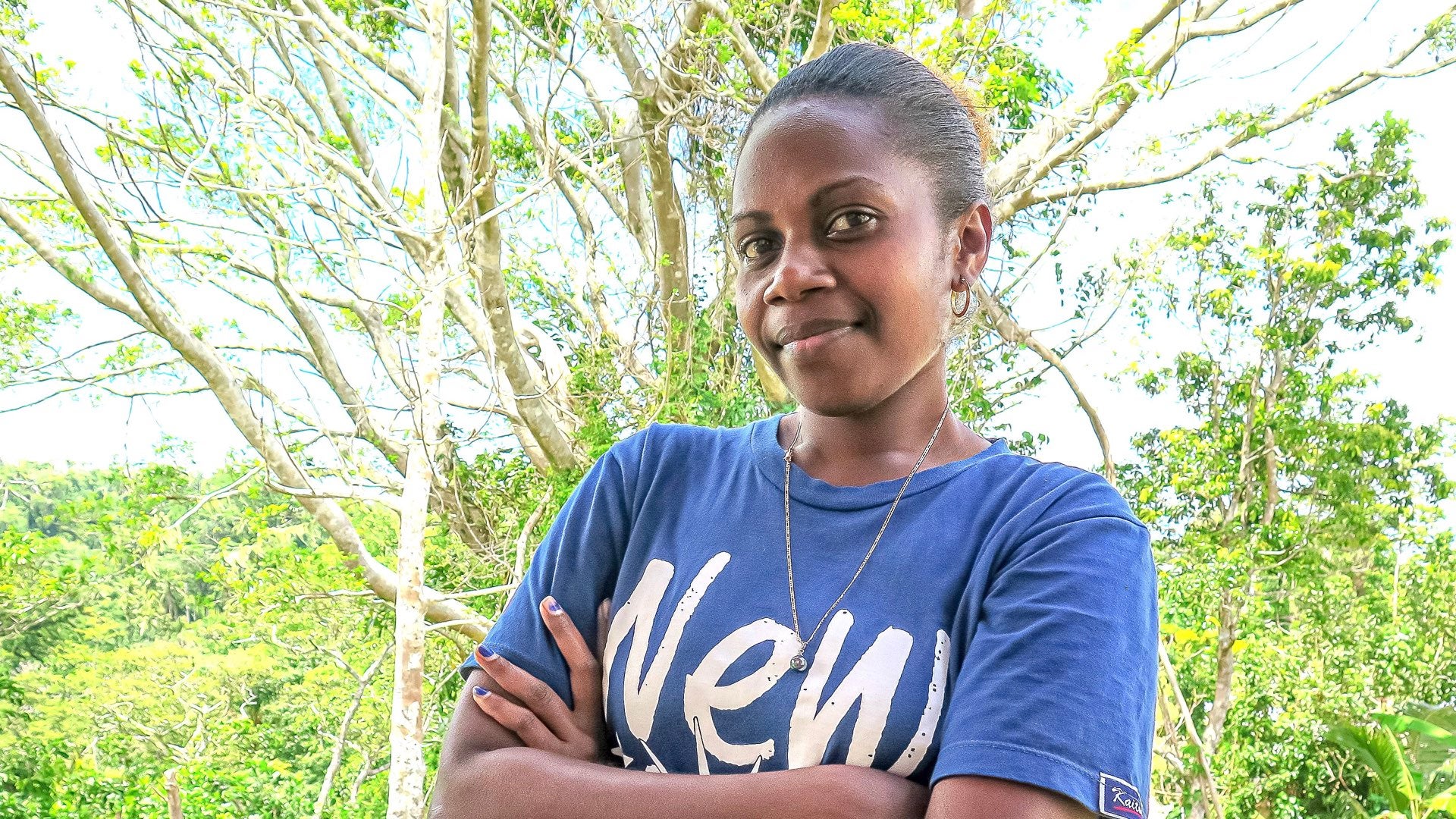
Vanuatu: Chariet Bule lives in Central Pentecost. It’s a remote part of the country with dense jungle and impassable mountains and with limited infrastructure. Chariet came to the Vanuatu Family Health Association's mobile clinic, supported by UNFPA, as part of the community based response to Tropical Cyclone Harold which devastated Pentecost in April 2020. The outreach was set up so that all women of reproductive age would first speak with a nurse to talk about their sexual and reproductive health needs, and be treated and/or referred to necessary services Chariet came with her friends and family and spent hours at the clinic, even after her appointment and treatment. She says the clinic gave them a space to see everyone and process the impact of the cyclone on their community.©UNFPA/Scarlett Hawkins
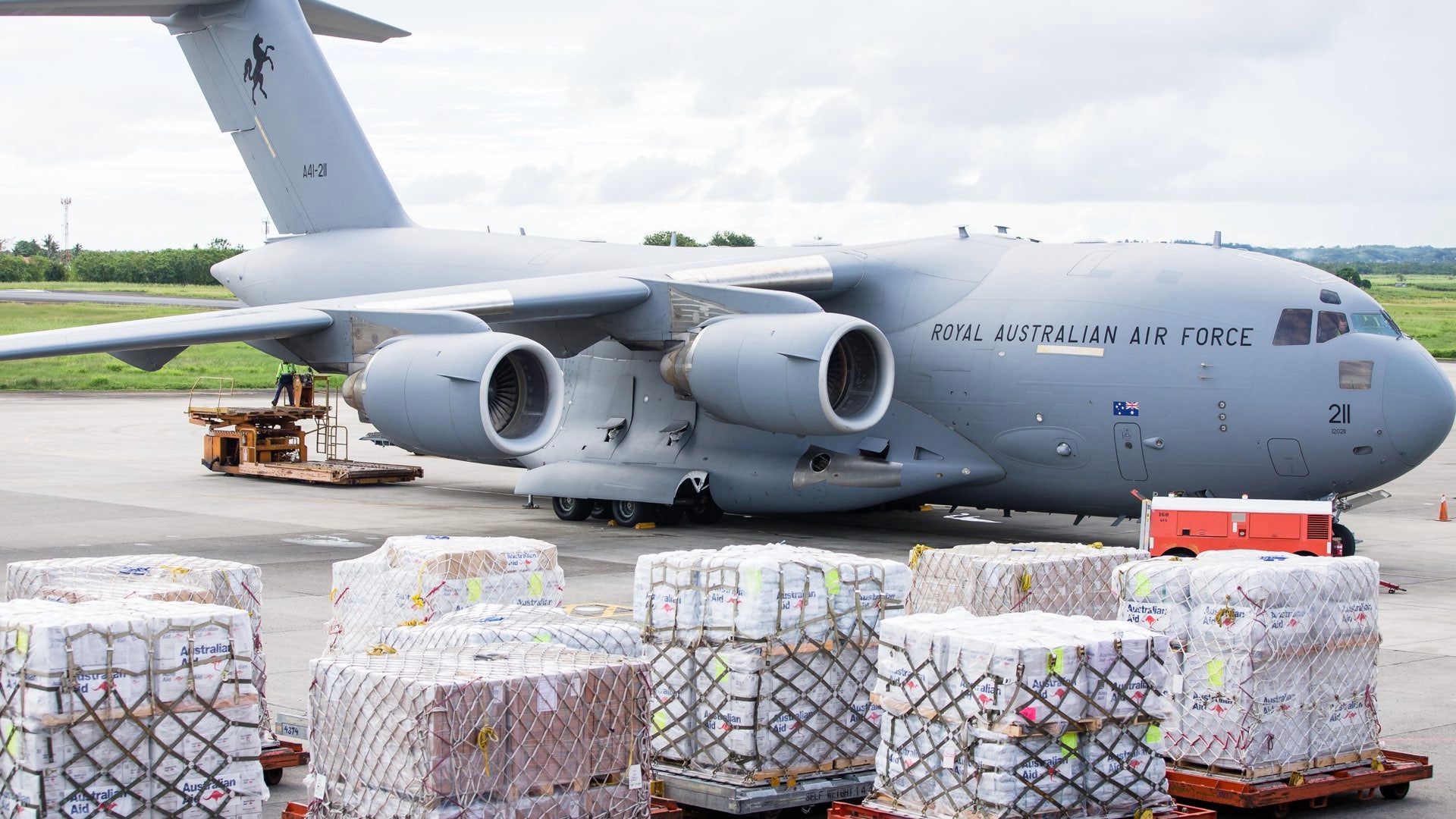
Fiji: In April 2020, Tropical Cyclone Harold swept through the Solomon Islands, Vanuatu, Fiji and Tonga, causing widespread damage to health infrastructure and forcing families from their homes. TC Harold was the first Category 5 cyclone to hit the Pacific region since Cyclone Gita in 2018. With supplies prepositioned in Brisbane, UNFPA was able to work closely with the Australian Defence Force to transport dignity kits and tents on the first C-17 humanitarian transport flight to land in the Pacific after the disaster. Together with prepositioned interagency reproductive health kits from the Suva warehouse, these supplies were critical in ensuring that women, adolescents and youth had continued access to lifesaving sexual and reproductive health and gender based violence response services, provided by national partners and local responders. ©UNI323682/Stephen
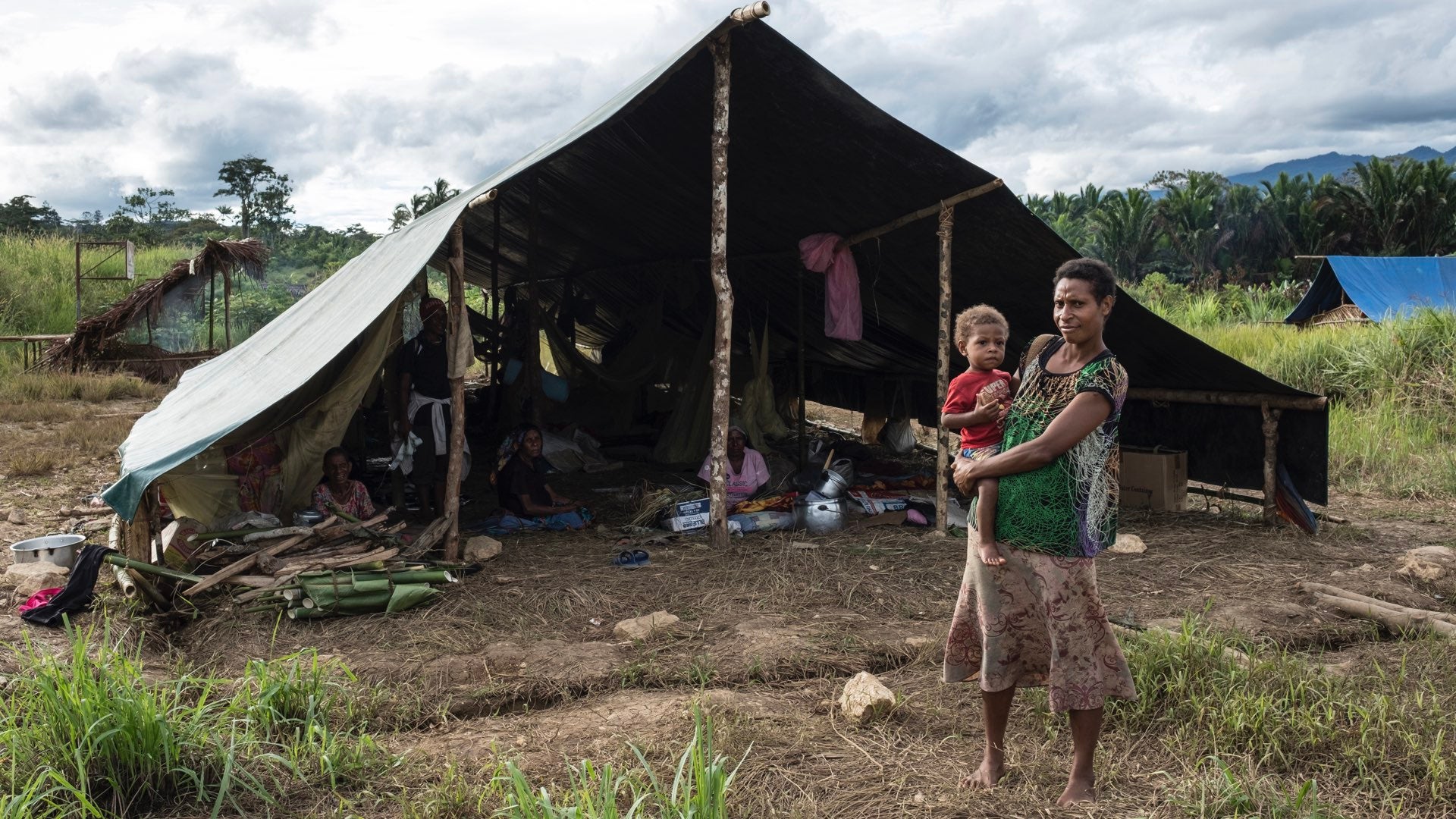
Papua New Guinea: Fiona, 28, stands with Silver Star, her one-year-old son, outside a makeshift tent where they were living after a 7.5 magnitude earthquake destroyed their home in Pimaga in February 2018. "My house fell down in the middle of the night,” says Fiona. “Sometime after three in the morning, we woke up because the earth was shaking. We all escaped but now our house is broken.” UNFPA supports the government of Papua New Guinea through coordinated preparedness and response efforts so that women like Fiona get lifesaving services and supplies, and are connected to information about health and protection. ©UN0186480/Nybo
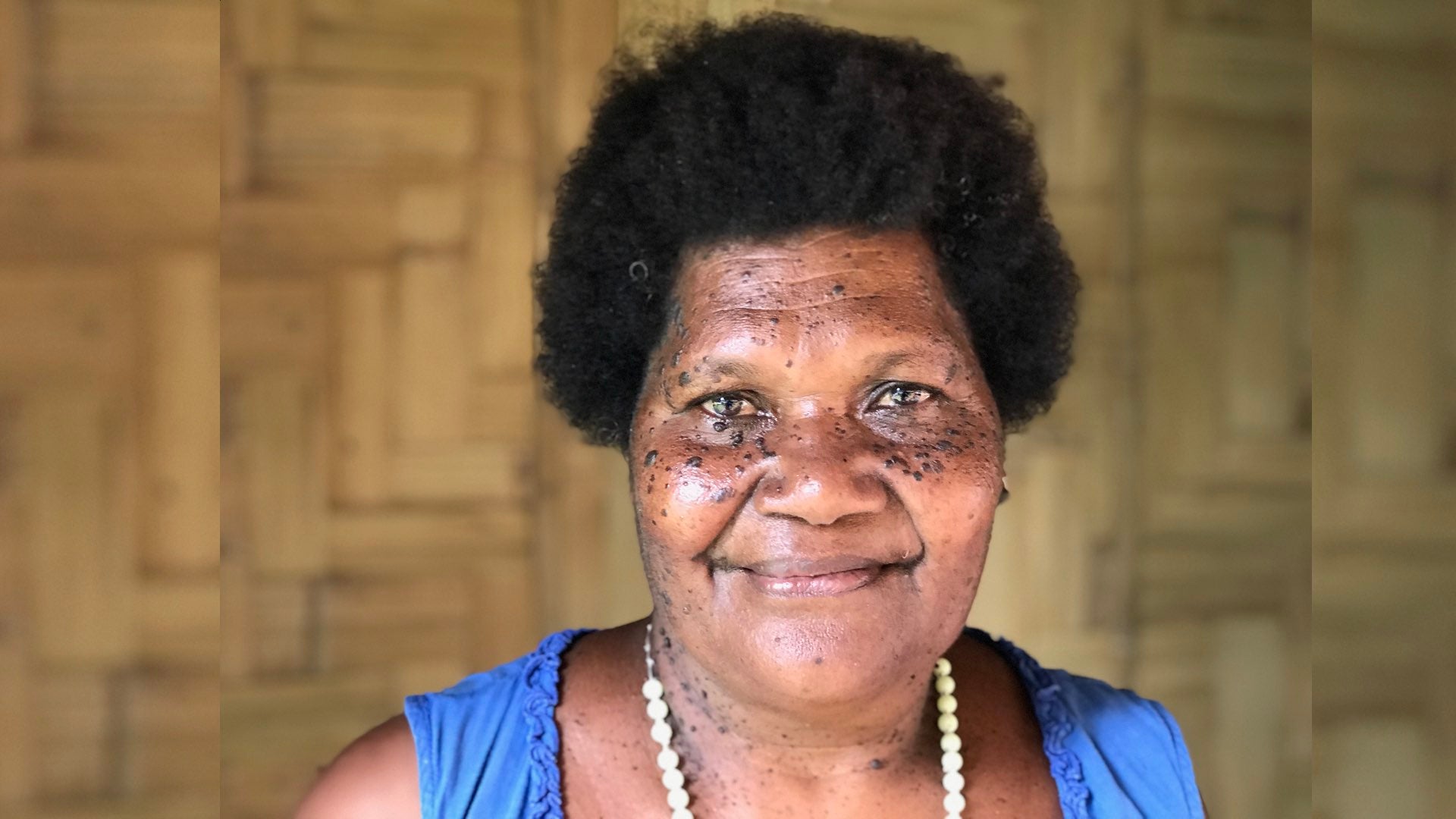
Solomon Islands: Madeleine has been through cyclones, droughts, floods and conflict. She knows how to survive and keep her family safe when disasters strike. During the tensions in her country, Madeleine and her family fled to the forest and lived there for years to avoid the checkpoints and armed groups near the city of Honiara. Peace has returned but the lessons remain and Madeleine and her family practice resilience by growing multiple crops and ensuring there are emergency supplies of water and medicine always on hand. Through the Regional Prepositioning Initiative, UNFPA has helped the government of Solomon Islands with support and planning so that women like Madeleine and her family are prioritized when systems are disrupted. ©UNFPA/Rose
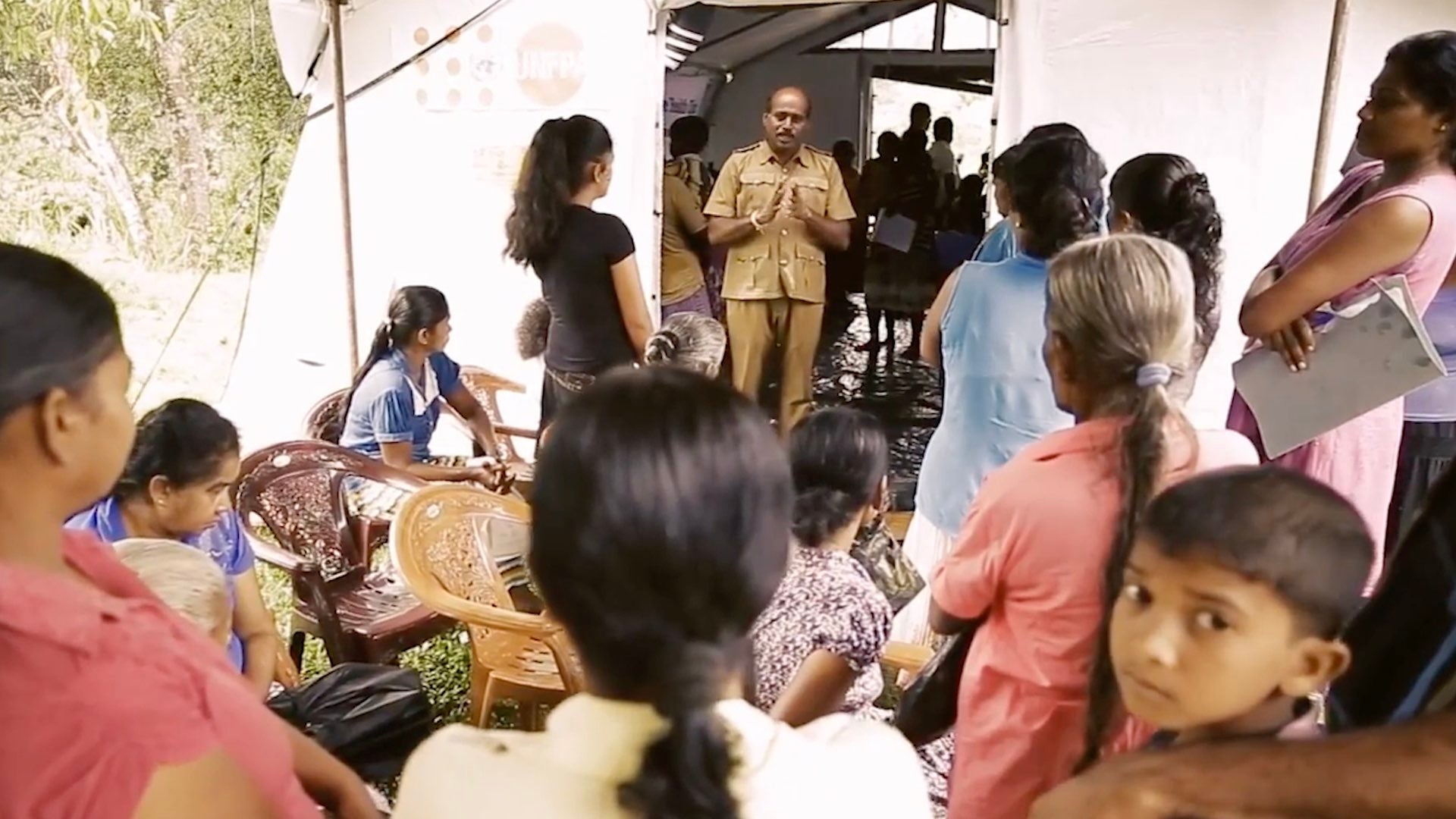
Sri Lanka: A government health worker speaks to women about the services that are available at an emergency community health center set up after flooding forced them from their homes. UNFPA works in close partnership with governments and civil society organizations to support nationally led preparedness and response efforts. ©UNFPA/Sri Lanka
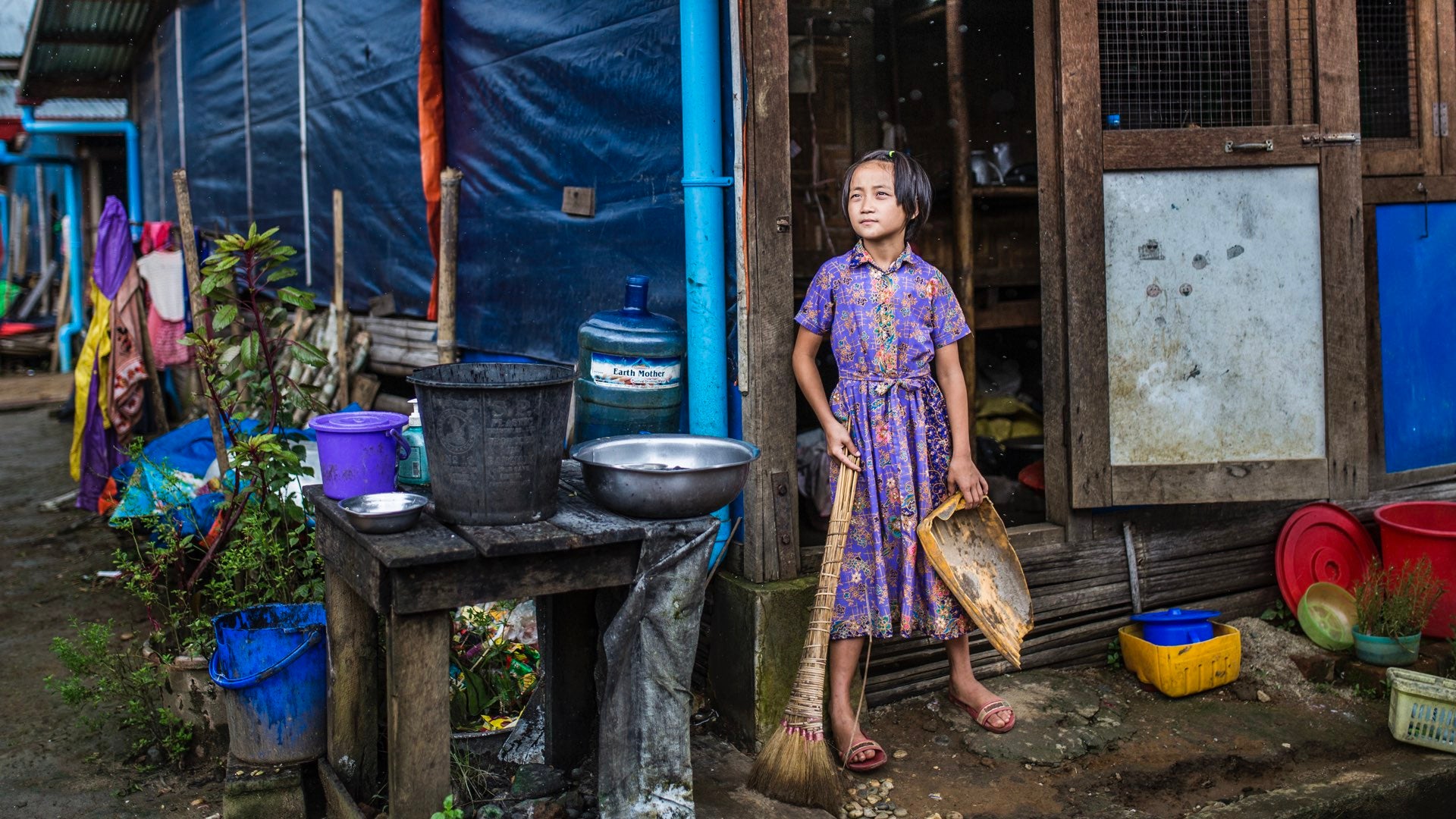
Myanmar: When not playing with friends, 9-year-old Mai Ra helps her mother with kitchen work and family chores such as cooking, cleaning and washing clothes. Life in the camps is challenging, so UNFPA works closely with local partners to gather feedback from young people to customise information and services to the specific situations in the camps. This targeted support is part of a comprehensive system of health, sanitation, protection and youth services so that girls like Mai can stay safe and healthy, even when they're away from their homes. ©UNI358734/Minzayar Oo
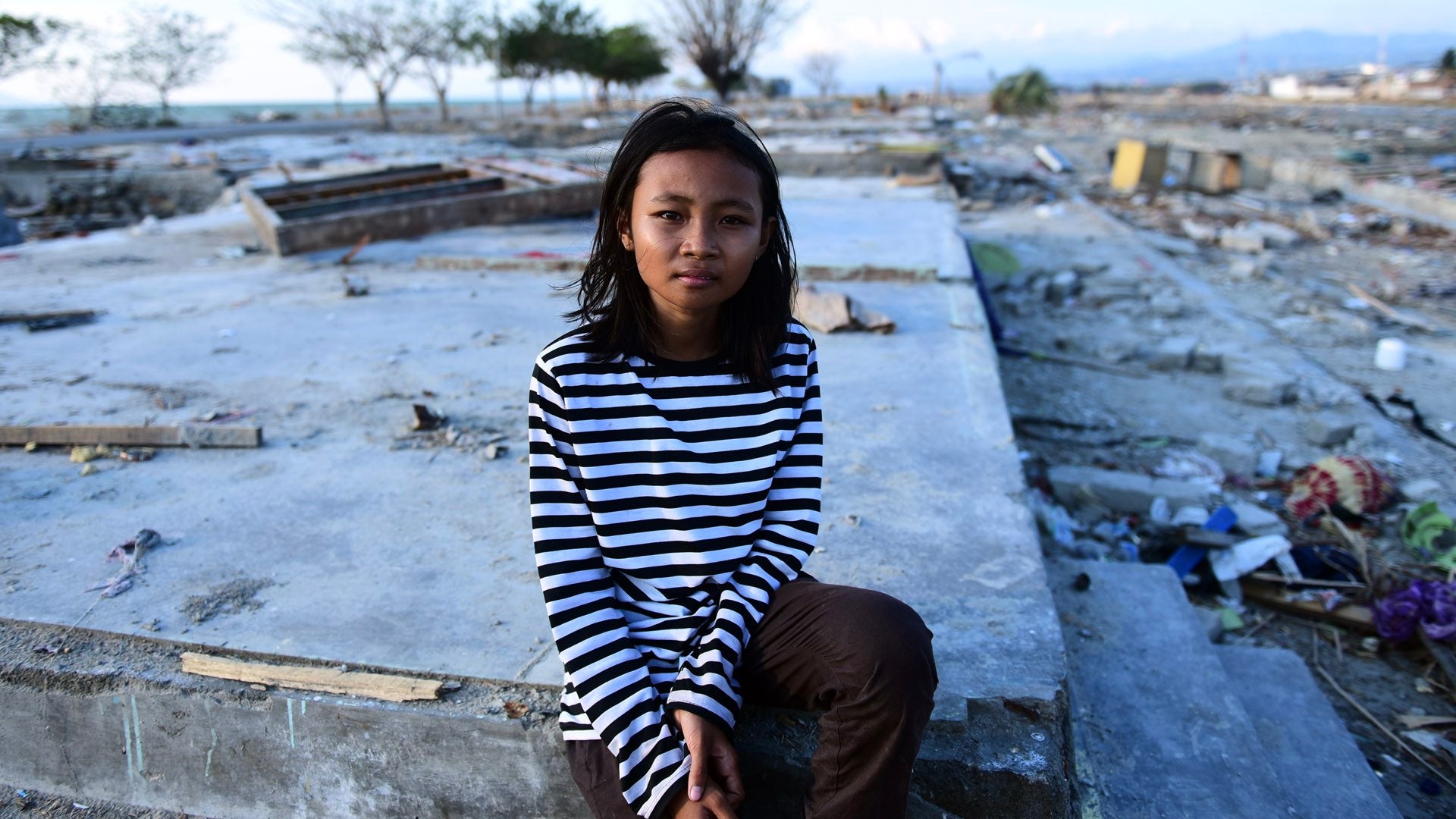
Indonesia: Sophia, age 11, at her home that was destroyed after a powerful 7.4 magnitude earthquake and tsunami devastated Central Sulawesi in September 2018. As the sea engulfed her home, Sophia reacted quickly and grabbed two mobile phones. They became the family’s lifeline in the following days and months, trying to find food, drink and information on where the rest of the family sought refuge. Within days of the disaster, UNFPA was on the ground working with national partners to set up safe spaces for girls like Sophia. These spaces become information points as well, helping young people charge their phones, get hotline numbers and access services. ©UN0251634/Wilander
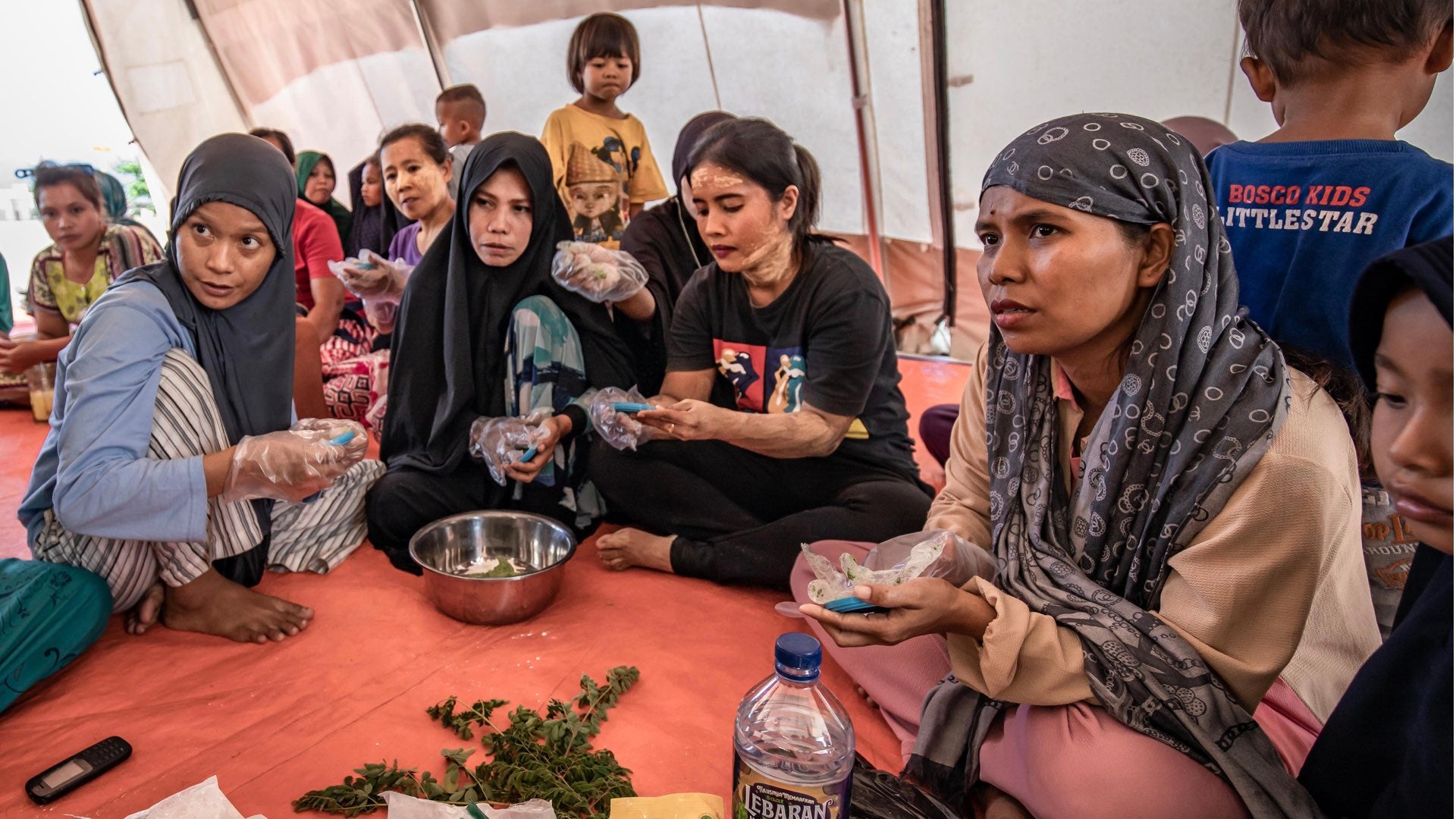
Indonesia: Women follow the recipe from the instruction at a course inside a women friendly space in Bangga. More than 1500 families were displaced from their homes when devastating flooding tore through their community in 2019. UNFPA was able to set up tents for women and girls within days of the disaster because supplies were prepositioned in warehouses in Jakarta. ©UNFPA/Learson
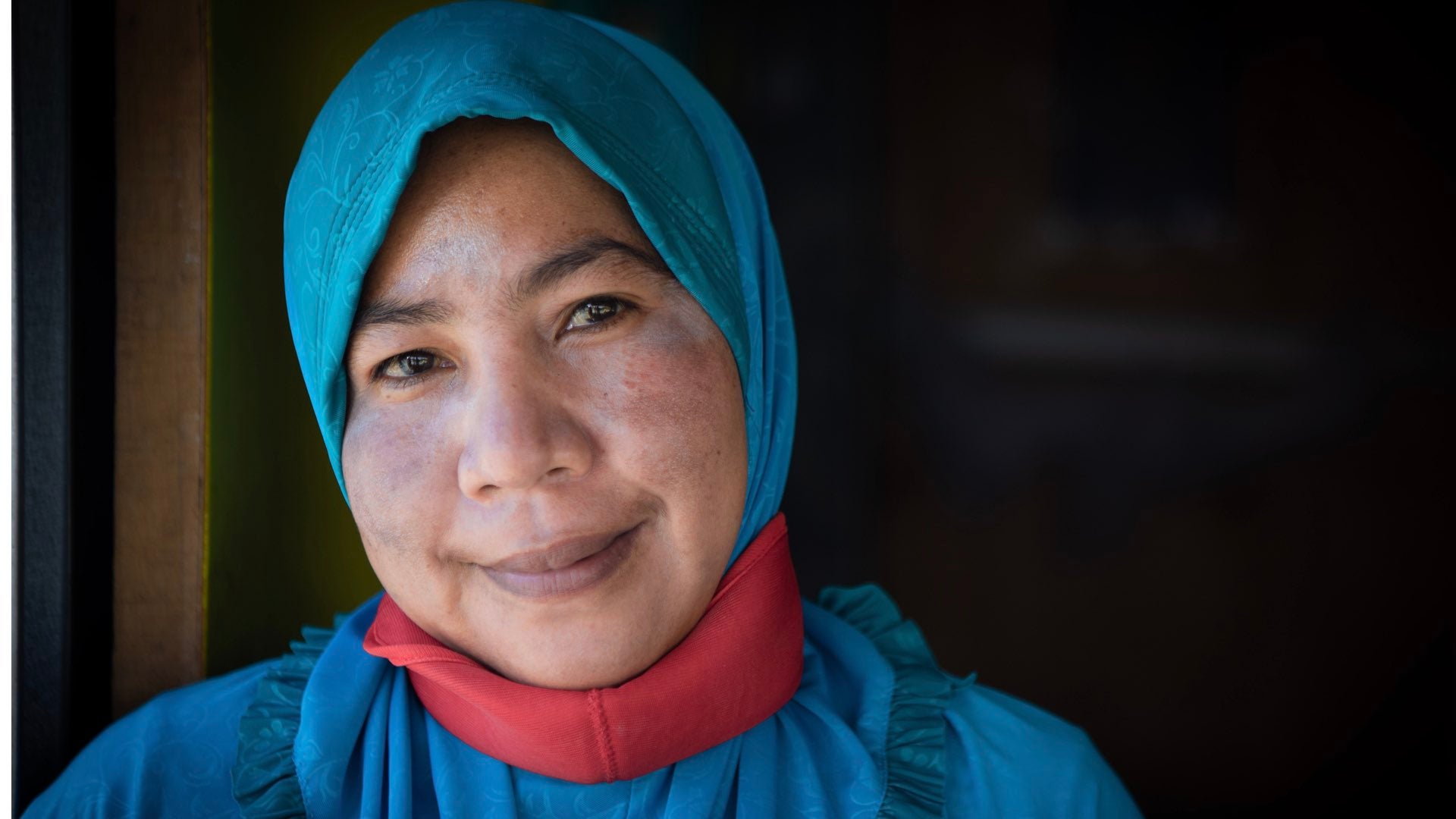
Indonesia: Through the Regional Prepositioning Initiative, UNFPA has complemented nationally-led responses, built the capacity of local partners, and provided technical support that has acted as a catalyst for change in policies and regulations. These collective efforts will ensure that the rights, health, wellbeing and dignity of women, adolescents and youth remain at the core of humanitarian programming. ©UNFPA/Learson

\\\\
About the Regional Prepositioning Initiative
Prepositioning has dramatically improved UNFPA’s humanitarian response in Asia and the Pacific in terms of speed, quality and efficiency. Prepositioning has also strengthened UNFPA’s reputation and reliability as a humanitarian actor, provided new opportunities to advocate for measures to address sexual and reproductive health and gender-based violence during humanitarian responses, and helped to build trust with governments and other partners. These outcomes assist UNFPA’s work in relation to the humanitarian, development and peace-building nexus.
The Regional Prepositioning Initiative aims to ensure that the lifesaving needs of women and girls in humanitarian crises across the Asia Pacific region are met by governments, UN agencies, national actors and key stakeholders through:
- Prepositioning supplies in disaster prone countries and regional hubs to respond to sexual and reproductive health and gender-based violence needs
- Building capacity to meet the health and protection needs of women and girls during emergencies
- Advocating for the needs of women, girls and marginalised groups such as people living with disabilities, to be prioritised in humanitarian response through consultations and strategic dialogues.
Click here to find out more about the project.


